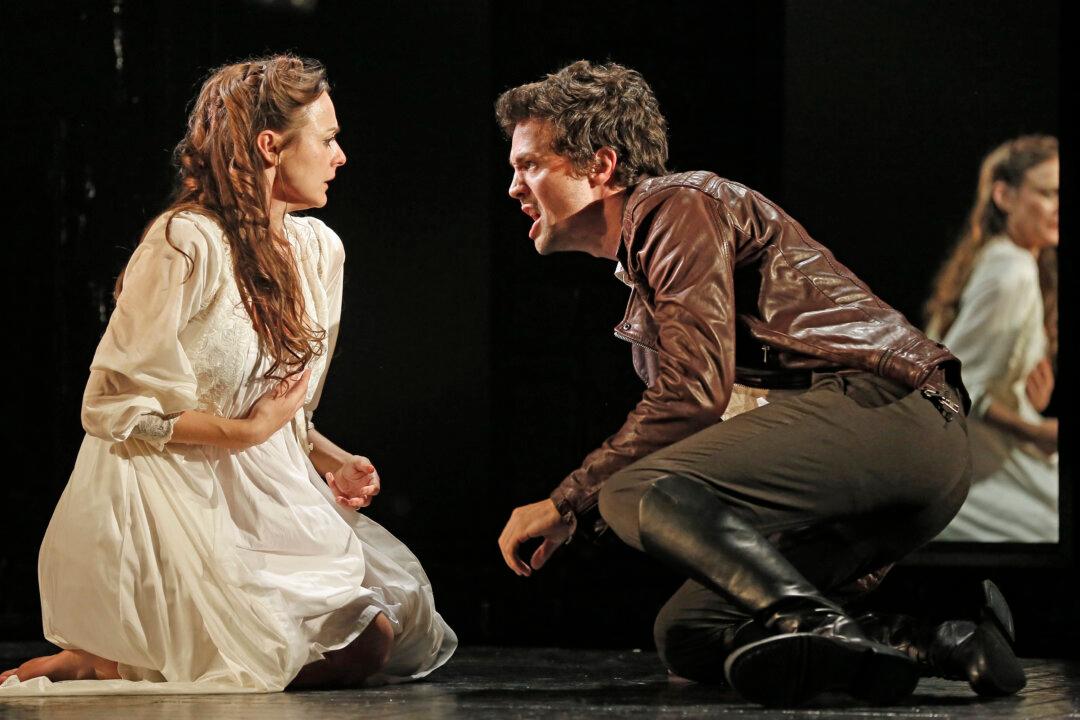NEW YORK—It’s been said that tragedy and comedy are two sides of the same coin, and that a given situation can appear hilarious in one interpretation, while tragic in another. Such is the case with Red Bull Theater’s production of Thomas Middleton and William Rowley’s rarely performed 1622 Jacobean work, “The Changeling,” currently presented off-Broadway at the Lucille Lortel Theatre.
In the port city of Alicante, Spain, the young nobleman Alsemero (Christian Coulson) has fallen in love with Beatrice-Joanna (Sara Topham), the beautiful daughter of Vermandero (Sam Tsoutsouvas). She quite happily reciprocates the feelings.
One cannot avoid answering for one's sins.





